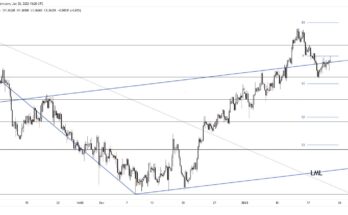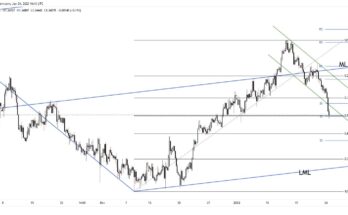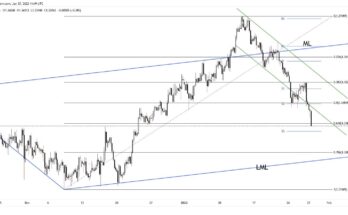Currencies are trading within remarkably tight ranges this morning, with traders ignoring broader themes to focus on debt negotiations between Greece and the European Union. The German Finance Ministry rejected a Hellenic request for an extension of its aid programme last night, saying that the proposal failed to commit to uphold previously agreed reforms – keeping the most indebted country in Europe on the path to further ruin.
However, in a sign that Germany’s position is beginning to soften, Vice Chancellor Sigmar Gabriel suggested that the proposal represented an important “first step†toward a solution that would be acceptable to all parties concerned.
Without access to emergency funding, Athens is set to begin defaulting on some of its liabilities within the coming month, yet markets remain broadly unperturbed. Bond yields are stable across the common currency area, and stock indices are trading near seven-year highs. The euro itself is gradually retaking territory lost at the beginning of the year, and investor sentiment appears to be pivoting into cautiously optimistic territory.
More: 3 bearish EUR/USD scenarios for 3 Different Greek Outcomes – Goldman Sachs
In an interesting contrarian indicator, Warren Buffett’s Berkshire Hathaway signed a deal last night to acquire Detlev Louis Motorradvertriebs, a Hamburg-based motorcycle clothing retailer. The Sage of Omaha said “Europe has hundreds of millions of people, high incomes, productive people, so it is a great place to be. The US is my first love, but I see terrific possibilities for us in Europeâ€. For other investors, it is perhaps time to heed his words of advice from many years ago – “be fearful when others are greedy, be greedy when others are fearfulâ€â€¦
Here in the frozen North, several factors are combining to keep the Canadian dollar firmly rangebound. In a speech to technology executives in Quebec yesterday, Agathe Côté, a deputy governor at the Bank of Canada, said that oil-related price deflation would have very little influence on the central bank’s decision making process, and that any interest rate changes at the March 4th meeting are not predetermined. This helped to boost the currency, but the effect wore off this morning when Statistics Canada released numbers showing that core retail sales in Canada fell by more than expected last month, to a seasonally adjusted -2.3%, from 0.7% in December. Forecasts had landed around -0.7% prior to the print, making the result a big miss.
As price indexes, real estate sales, and retail spending numbers erode rapidly, it is clear that Canadian consumer sentiment is turning negative, helping the justify the preemptive fall in the loonie that has occurred over the past six months. Further pain is coming, and interest rate differentials are likely to remain under pressure for some time to come, meaning that a test of the 1.30 area is becoming increasingly likely.
More: Staying Long USD/CAD For 1.3050; Staying Bearish On CAD – Credit Agricole
With that said, there are reasons to suspect that the currency’s fall will not continue ad infinitum. As US consumers open their wallets, and activity rebalances toward the manufacturing and tradeable services sectors, the Canadian economy should become more competitive and sustainable. Before that day arrives, foreign exchange traders and foreign investors will once regain their appetites, and the loonie will stage a recovery. Businesses should look to harness both sides of this dynamic – talk to your trading teams about how to do so.
Have a great weekend!
In this week’s podcast, we cover Questions for traders, State of Fed, Greek crisis, oil, gold and GBP
Subscribe to our iTunes page



